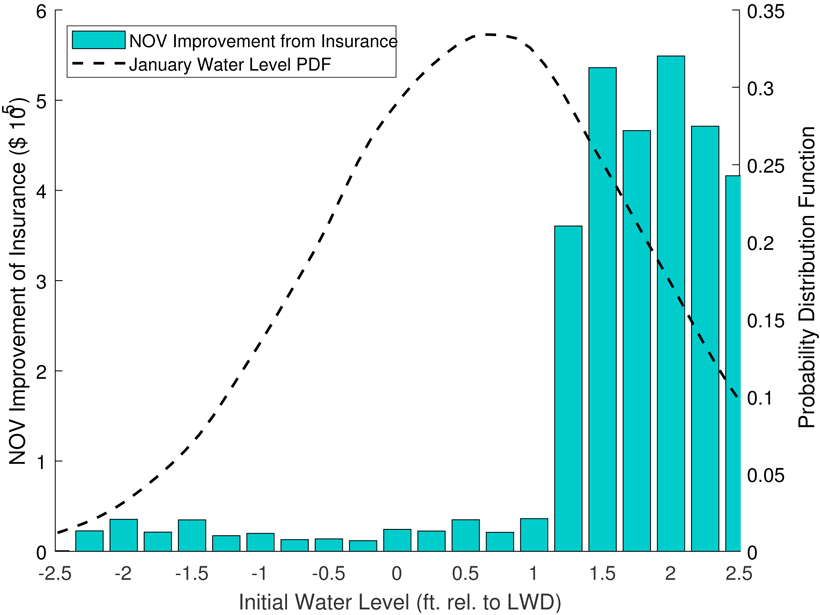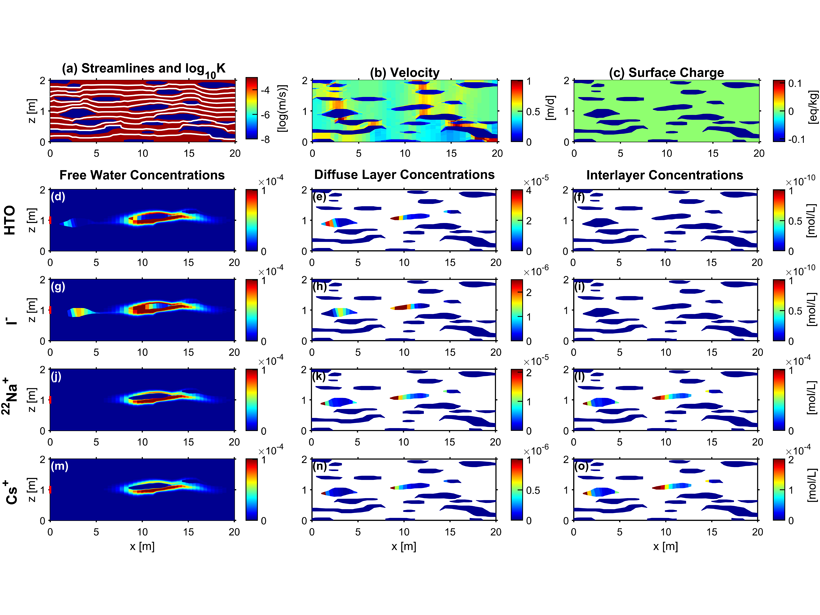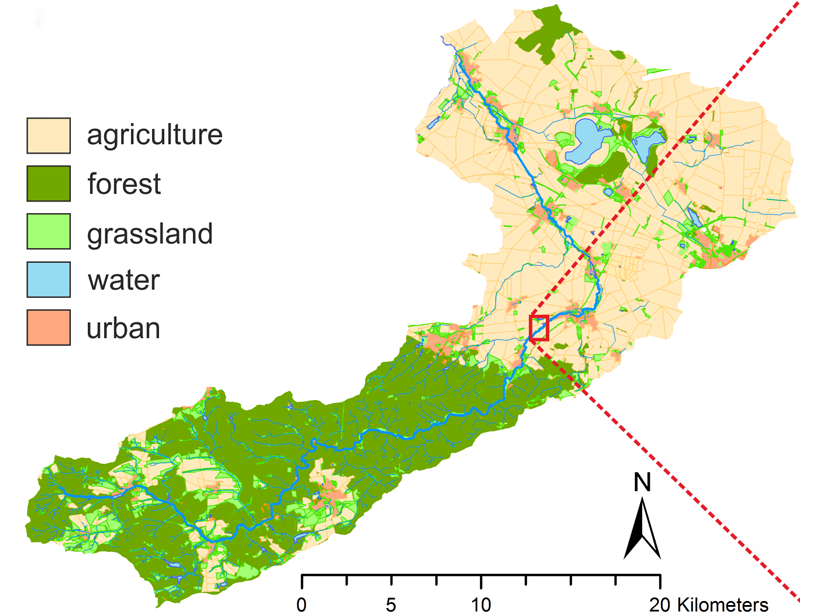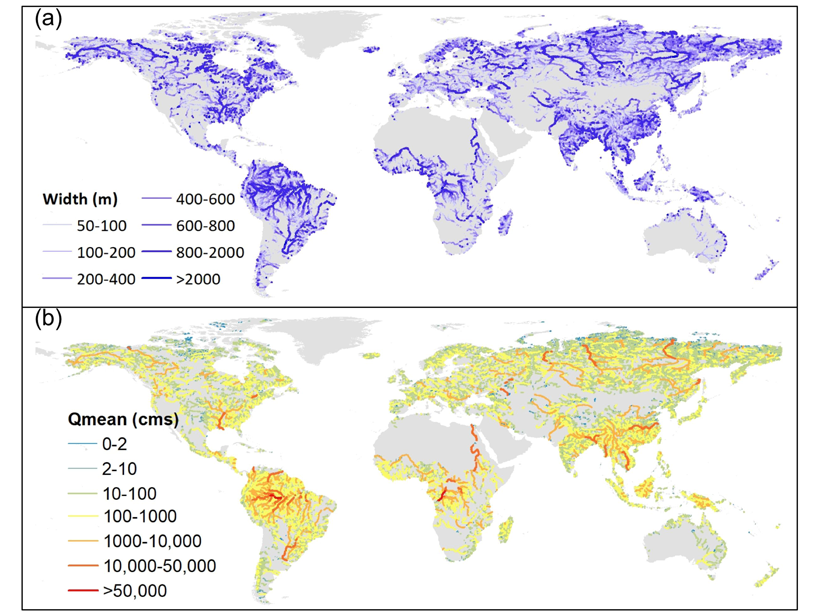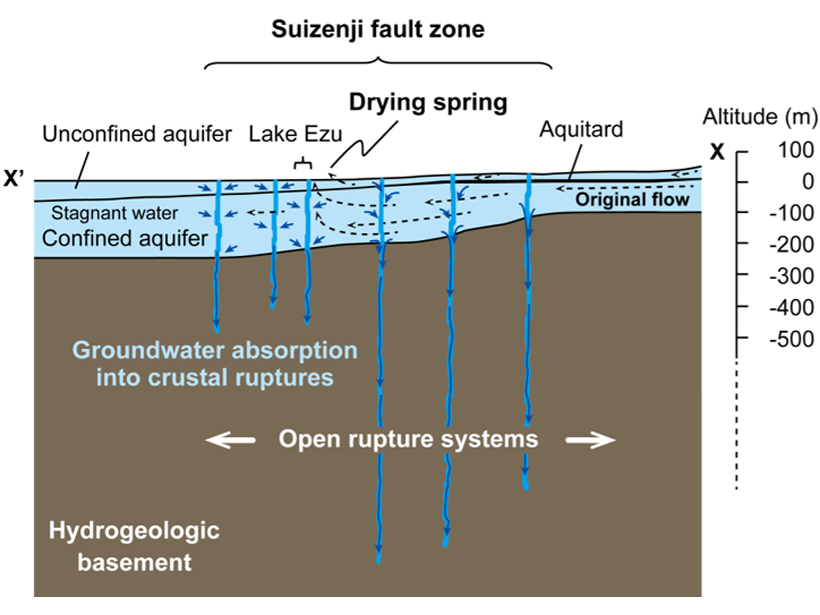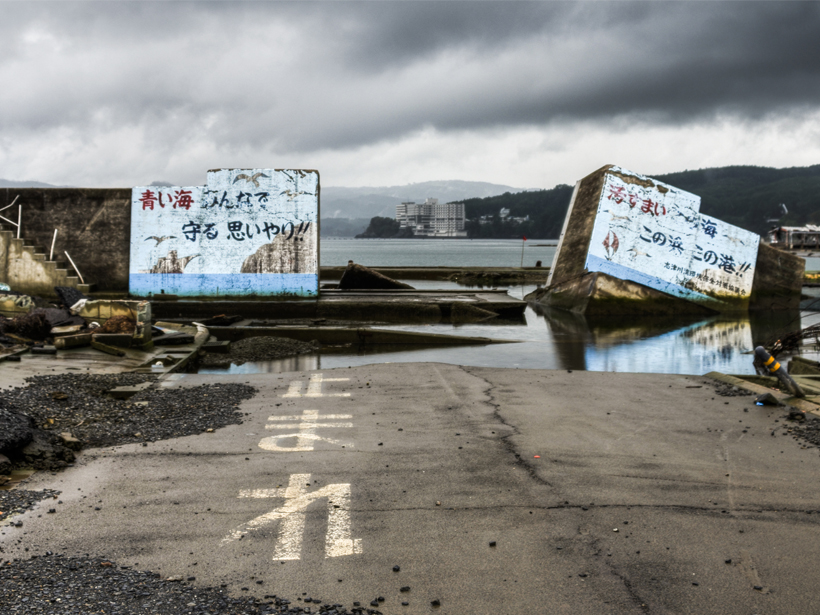Modeling of mysteriously fluctuating water levels in the Great Lakes has helped to optimize the prices of shipping insurance contracts along with investments in dredging navigation channels.
Water Resources Research
Snowpack Data Sets Put to the Test
A new study compares the accuracy of three observation-based methods of calculating snow water equivalent, a key component in water management.
Modeling Transport and Charge Effects in Heterogeneous Media
Simulation of charged species reactive transport in complex physically and electrostatically heterogeneous porous media is possible with a multiple continua approach coupled to a geochemical code.
Repeating Famous Hillslope Experiment Provides New Insights
Repeating a famous hillslope experiment after 55 years shows that soil properties can change within several decades and highlights the importance of a leaky boundary for hillslope drainage.
New Isotope Model Predicts Denitrification from Riparian Zones
A new model quantifies the relative contributions of denitrification and other processes of nitrogen uptake, such as by plants, from groundwater in riparian areas around streams.
Hydropower and Bugs
Alpine hydropower plants commonly flush sediment that accumulates at intakes, but the associated rapid rise in discharge, turbidity, and streambed instability put aquatic insects at risk.
Reconstructing Natural Streamflow at Unprecedented Resolution
A new research effort has mapped 35 years of naturalized streamflow for 2.94 million river reaches worldwide: an invaluable dataset for hydrology, biogeochemistry, ecology, and remote sensing.
Groundwater Drawn Downward After Kumamoto Quake
A unique set of high-frequency groundwater level monitoring reveals a loss of approximately ten million cubic meters of groundwater after a major earthquake.
Earthquakes Shake Up Groundwater Systems
Increased permeability temporarily boosts water flow.
Capturing Snowmelt Patterns from Cloudy Satellite Images
A new modeling strategy could improve streamflow predictions in places where mountain snow is a critical source of water.

